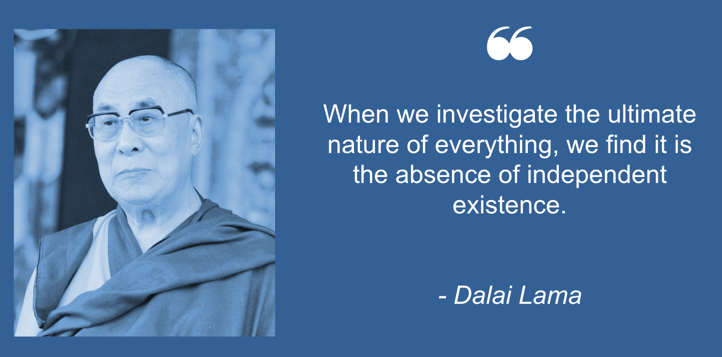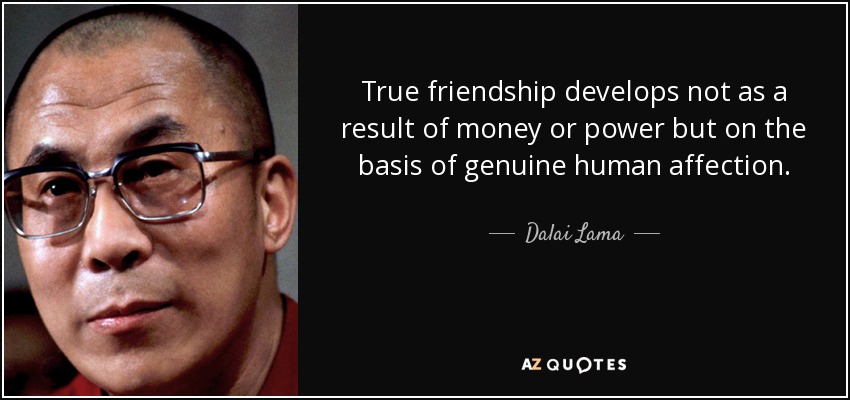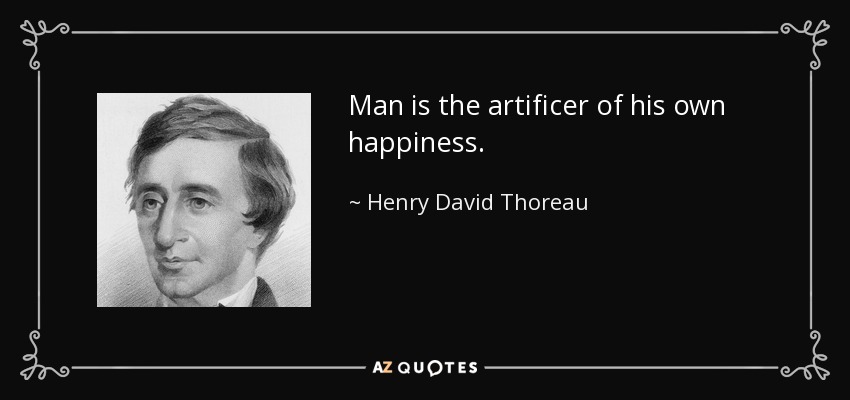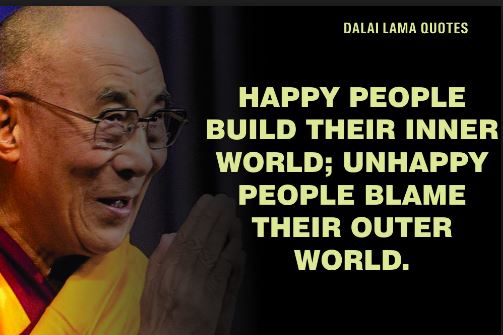You are using an out of date browser. It may not display this or other websites correctly.
You should upgrade or use an alternative browser.
You should upgrade or use an alternative browser.
HOW to be HAPPY
- Thread starter JUPITERASC
- Start date
JUPITERASC
Well-known member
Thirdteenth
Well-known member
If you were to smile then your brain will get tricked into thinking that the person initialing the smile in first place, might just actually be happy and that could be true. Even though sadness, anger, depression and all these debilitating emotions exist, give yourself a **** break once and awhile and smile or I’m going make sure you smile  yeah, we handing out smiles like candy baby lol
yeah, we handing out smiles like candy baby lol
david starling
Well-known member
If you were to smile then your brain will get tricked into thinking that the person initialing the smile in first place, might just actually be happy and that could be true. Even though sadness, anger, depression and all these debilitating emotions exist, give yourself a **** break once and awhile and smile or I’m going make sure you smileyeah, we handing out smiles like candy baby lol
With masks, you need to smile with your eyes!
Thirdteenth
Well-known member
JUPITERASC
Well-known member
Thirdteenth
Well-known member
With masks, you need to smile with your eyes!
Hello David
 What if the opportunity opens itself up for people to get a microchip programmed with all the latest IOS emojis installed into their brains so that they can have a choice to choose what emotion they’ll like to show to the world. How it works would be to blink your eyes to see the options and focus your sights on the emoji that you want
What if the opportunity opens itself up for people to get a microchip programmed with all the latest IOS emojis installed into their brains so that they can have a choice to choose what emotion they’ll like to show to the world. How it works would be to blink your eyes to see the options and focus your sights on the emoji that you want  and blink to select. Everyone will know that your not only happy behind the mask but your chip is confirming that too.
and blink to select. Everyone will know that your not only happy behind the mask but your chip is confirming that too.JUPITERASC
Well-known member
*
Our mind, as it is, is really not qualified
nor equipped
to search into the innermost depths of ourselves.
We have been given guidelines as to how to search
for things outside ourselves
but hardly any directions
have been given on how to look inwards.
We have to train ourselves to look inside
and the only way to achieve this is through meditation.
In order to meditate, the mind should be channeled
otherwise, it will not have the power
to concentrate on one object.
In that case,
what we often imagine to be meditation
is not meditation at all.
Our indiscipline mind is like a candle flame
which flickers in the wind.
Objects distorted by such a light
seem to be vibrating
and cannot be clearly distinguished by the eyes.
Even a few moments of meditation make one realize
how quickly the mind moves from one object to another
and how disturbed it is by many causes
such as emotions and memories.
The mind resembles a crowded street
in which cars, motor cycles, bicycles and people are moving.
When we are in crowd, we are aware only of the rush
and fuss around us, but if we look down from the top floor
of a tall building, we shall see how large the crowd is
and how numerous the people.
Similarly, when the mind is full of disturbance and obstructions
we do not notice how fickle it is.
When we start to meditate and are able to detach ourselves
we become aware how crowded and restless the mind is.
The mind of the ordinary people is usually fragmented
and divided, full of thoughts and illusions.
In this condition concentration is absolutely impossible
Thus, in order to look inwards
so that we come to know our inner selves better
the mind must be trained in concentration.
HIS EMINENCE PROFESSOR SAMDHONG RINPOCHE
Excerpt from the book “...Buddhist Meditation...”
This little book is based on a series of talks
given to students at the School of the Wisdom, Theosophical Society,
Adyar, Chennai in 1982
.
Our mind, as it is, is really not qualified
nor equipped
to search into the innermost depths of ourselves.
We have been given guidelines as to how to search
for things outside ourselves
but hardly any directions
have been given on how to look inwards.
We have to train ourselves to look inside
and the only way to achieve this is through meditation.
In order to meditate, the mind should be channeled
otherwise, it will not have the power
to concentrate on one object.

In that case,
what we often imagine to be meditation
is not meditation at all.
Our indiscipline mind is like a candle flame
which flickers in the wind.
Objects distorted by such a light
seem to be vibrating
and cannot be clearly distinguished by the eyes.
Even a few moments of meditation make one realize
how quickly the mind moves from one object to another
and how disturbed it is by many causes
such as emotions and memories.
The mind resembles a crowded street
in which cars, motor cycles, bicycles and people are moving.
When we are in crowd, we are aware only of the rush
and fuss around us, but if we look down from the top floor
of a tall building, we shall see how large the crowd is
and how numerous the people.
Similarly, when the mind is full of disturbance and obstructions
we do not notice how fickle it is.
When we start to meditate and are able to detach ourselves
we become aware how crowded and restless the mind is.
The mind of the ordinary people is usually fragmented
and divided, full of thoughts and illusions.
In this condition concentration is absolutely impossible
Thus, in order to look inwards
so that we come to know our inner selves better
the mind must be trained in concentration.
HIS EMINENCE PROFESSOR SAMDHONG RINPOCHE

Excerpt from the book “...Buddhist Meditation...”
This little book is based on a series of talks
given to students at the School of the Wisdom, Theosophical Society,
Adyar, Chennai in 1982
.
JUPITERASC
Well-known member
JUPITERASC
Well-known member
*
7 Difficult
But Simple
Buddhist Habits That Will Change Your Life
https://www.youtube.com/watch?v=eytfr21V5Ok
.
7 Difficult
But Simple

Buddhist Habits That Will Change Your Life
https://www.youtube.com/watch?v=eytfr21V5Ok
.
JUPITERASC
Well-known member
*
Now when we talk about objects of enjoyment or desire
and material well-being
Buddhist literature mentions five types of objects of desire:
form, sound, odours, tastes and tactile sensations.
Whether or not these objects of enjoyment give rise to happiness
satisfaction and contentment
or conversely, give rise to suffering and dissatisfaction
depends very much on how you apply your faculty of intelligence.
Our behaviour in our daily lives is the key factor
in determining
whether these really produce genuine
long-lasting satisfaction or not.
Much depends on our own attitude.
And for this mental factor, motivation is the key thing.
~ H.H. Dalai Lama XIV
.
.
Now when we talk about objects of enjoyment or desire
and material well-being
Buddhist literature mentions five types of objects of desire:
form, sound, odours, tastes and tactile sensations.
Whether or not these objects of enjoyment give rise to happiness
satisfaction and contentment
or conversely, give rise to suffering and dissatisfaction
depends very much on how you apply your faculty of intelligence.
Our behaviour in our daily lives is the key factor

in determining
whether these really produce genuine
long-lasting satisfaction or not.
Much depends on our own attitude.
And for this mental factor, motivation is the key thing.

~ H.H. Dalai Lama XIV
.
.
JUPITERASC
Well-known member

*
Now when we talk about objects of enjoyment or desire
and material well-being
Buddhist literature mentions five types of objects of desire:
form, sound, odours, tastes and tactile sensations.
Whether or not these objects of enjoyment give rise to happiness
satisfaction and contentment
or conversely, give rise to suffering and dissatisfaction
depends very much on how you apply your faculty of intelligence.
Our behaviour in our daily lives is the key factor
in determining
whether these really produce genuine
long-lasting satisfaction or not.
Much depends on our own attitude.
And for this mental factor, motivation is the key thing.
~ H.H. Dalai Lama XIV
.
.
JUPITERASC
Well-known member

*
Now when we talk about objects of enjoyment or desire
and material well-being
Buddhist literature mentions five types of objects of desire:
form, sound, odours, tastes and tactile sensations.
Whether or not these objects of enjoyment give rise to happiness
satisfaction and contentment
or conversely, give rise to suffering and dissatisfaction
depends very much on how you apply your faculty of intelligence.
Our behaviour in our daily lives is the key factor
in determining
whether these really produce genuine
long-lasting satisfaction or not.
Much depends on our own attitude.
And for this mental factor, motivation is the key thing.
~ H.H. Dalai Lama XIV
.
JUPITERASC
Well-known member
JUPITERASC
Well-known member
*
The most important benefit that patience brings us
is the way it acts as a powerful antidote to the affliction of anger
which is the greatest of threats to our inner peace
and therefore against our happiness.
HH XIV Dalai Lama.
.
The most important benefit that patience brings us
is the way it acts as a powerful antidote to the affliction of anger

which is the greatest of threats to our inner peace
and therefore against our happiness.
HH XIV Dalai Lama.
.
JUPITERASC
Well-known member
JUPITERASC
Well-known member
JUPITERASC
Well-known member
JUPITERASC
Well-known member
Thirdteenth
Well-known member
I genuinely like this thread. I just smile every time I click on it  Thank you JUPITERASC for making it
Thank you JUPITERASC for making it 
 Thank you JUPITERASC for making it
Thank you JUPITERASC for making it 









